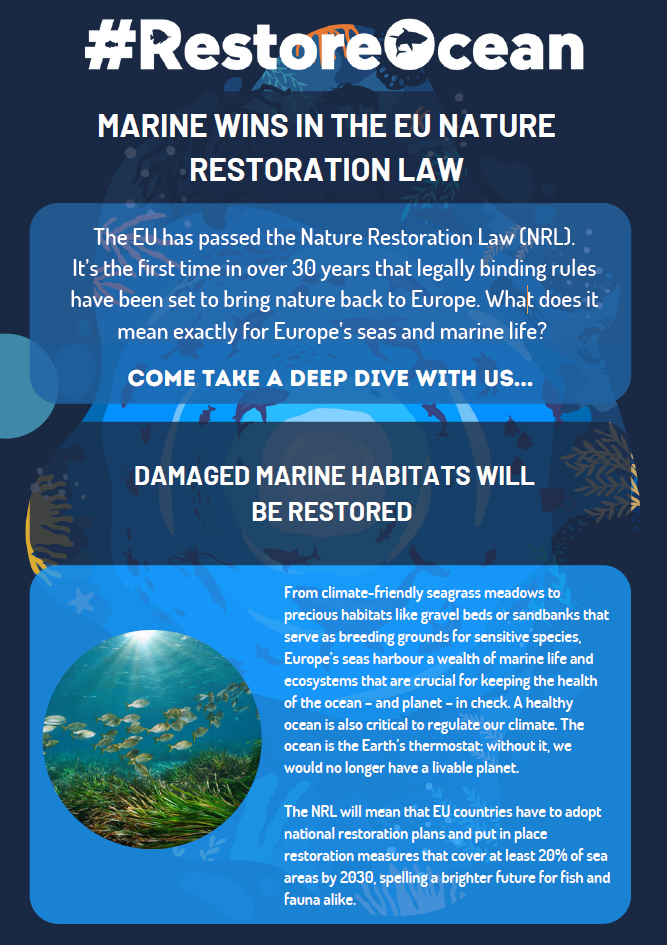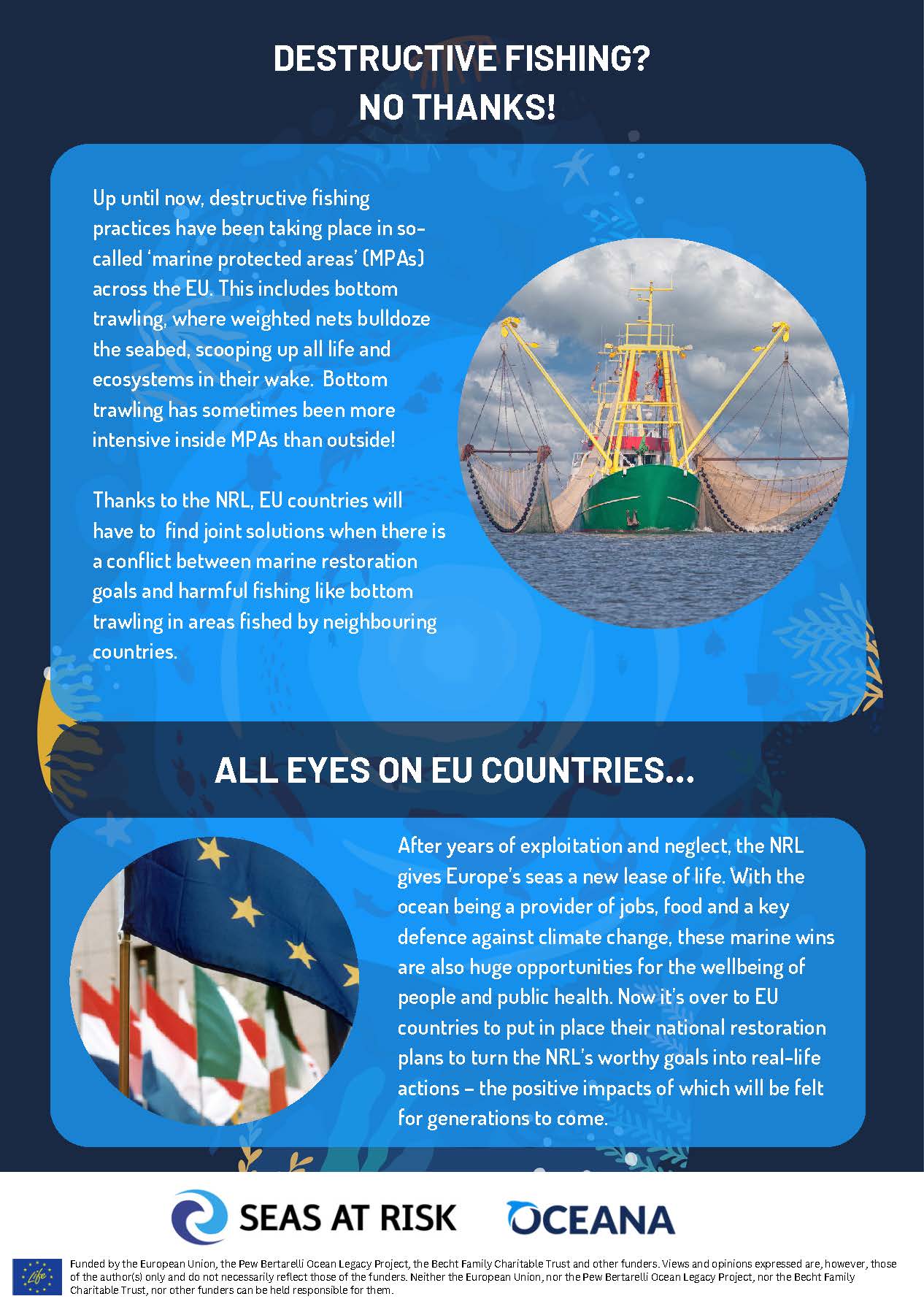June 17, 2024
Reviving Europe’s oceans: Marine wins under the Nature Restoration Law
The EU Council has officially adopted the Nature Restoration Law today, marking the first major piece of legislation aimed at restoring nature in the past thirty years! This regulation mandates the restoration of marine habitats and addresses destructive fishing practices, thereby enhancing the ocean’s role as the planet’s largest carbon store and bolstering biodiversity and climate resilience.
As Nicolas Fournier, Campaign Director for Marine Protection at Oceana in Europe, states: “Today’s final adoption of the Nature Restoration Law is incredibly important. It will help Europe rebuild nature, enhance climate resilience, particularly of the largest carbon store on the planet – the ocean – by allowing countries to tackle destructive fishing to regenerate marine habitats. Importantly, it revives hope in the future by countering the anti-environment narrative peddled by some in the EU election campaign. The adoption of restoration targets for 20% of EU land and seas will concretely help tackle the planetary crises and maintain Europe as a global leader on biodiversity.”
In addition to the overarching target for countries to restore 20% of EU land and seas by 2030, here are some specific wins for the marine environment resulting from the newly adopted EU Nature Restoration Law:
- Restoration of Damaged Habitats: EU Member States must ensure that at least 30% of their damaged habitats, both terrestrial and marine, are covered by restoration measures by 2030.
- Broad Scope for Marine Restoration: Unlike terrestrial restoration, marine restoration is not restricted to Natura 2000 sites. It can also occur beyond existing Marine Protected Areas.
- Fisheries Management: The law introduces a new Article (14a) focused on fisheries. It mandates that EU countries jointly develop and adopt measures to resolve conflicts between marine restoration goals and harmful fishing practices, such as destructive bottom trawling by several neighboring countries in a restoration area. By July 2028, they must submit joint recommendations under the Common Fisheries Policy. If there are delays or a failure to submit these recommendations, the European Commission will have the authority to intervene.
Learn more about our campaign for a EU Nature Restoration Law to #RestoreOcean!



